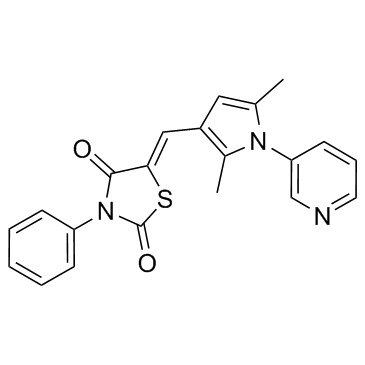PAF-Wnt signaling-induced cell plasticity is required for maintenance of breast cancer cell stemness.
Xin Wang, Youn-Sang Jung, Sohee Jun, Sunhye Lee, Wenqi Wang, Andrea Schneider, Young Sun Oh, Steven H Lin, Bum-Joon Park, Junjie Chen, Khandan Keyomarsi, Jae-Il Park
文献索引:Nat. Commun. 7 , 10633, (2016)
全文:HTML全文
摘要
Cancer stem cells (CSCs) contribute to tumour heterogeneity, therapy resistance and metastasis. However, the regulatory mechanisms of cancer cell stemness remain elusive. Here we identify PCNA-associated factor (PAF) as a key molecule that controls cancer cell stemness. PAF is highly expressed in breast cancer cells but not in mammary epithelial cells (MECs). In MECs, ectopic expression of PAF induces anchorage-independent cell growth and breast CSC marker expression. In mouse models, conditional PAF expression induces mammary ductal hyperplasia. Moreover, PAF expression endows MECs with a self-renewing capacity and cell heterogeneity generation via Wnt signalling. Conversely, ablation of endogenous PAF induces the loss of breast cancer cell stemness. Further cancer drug repurposing approaches reveal that NVP-AUY922 downregulates PAF and decreases breast cancer cell stemness. Our results unveil an unsuspected role of the PAF-Wnt signalling axis in modulating cell plasticity, which is required for the maintenance of breast cancer cell stemness.
相关化合物
| 结构式 | 名称/CAS号 | 分子式 | 全部文献 |
|---|---|---|---|
 |
iCRT 14
CAS:677331-12-3 |
C21H17N3O2S |
|
Sequential actions of β-catenin and Bmp pattern the oral ner...
2014-01-01 [Nat. Commun. 5 , 5536, (2014)] |
|
A switch from canonical to noncanonical Wnt signaling mediat...
2014-12-01 [Stem Cells 32(12) , 3196-208, (2014)] |
|
Targeting Wnt pathway in mantle cell lymphoma-initiating cel...
2015-01-01 [J. Hematol. Oncol. 8 , 63, (2015)] |
|
Wnt inhibition leads to improved chemosensitivity in paediat...
2014-10-01 [Br. J. Haematol. 167(1) , 87-99, (2014)] |
|
An RNAi-based chemical genetic screen identifies three small...
2011-04-12 [Proc. Natl. Acad. Sci. U. S. A. 108 , 5954-5963, (2011)] |